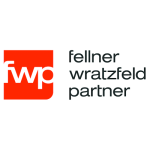Market overview
The Austrian M&A market in 2023 was characterised by macro-political tensions, rising interest rates, and high inflation. However, while the challenging environment has significantly slowed down the number of transactions on a global level, the domestic market is comparatively resilient, according to the Deloitte M&A Monitor: Austria (in German). While the transaction number followed the overall downward trend from previous years, the overall volume of transactions increased significantly compared with 2022.
As a result of rising inflation and the generally tense economic situation, insolvency proceedings were opened for around 3,400 companies in 2023. This is an increase of 16% compared with 2022. According to creditor protection institutions, the insolvencies in 2023 represent the highest figure of the past decade. It is noteworthy that the number of corporate insolvency proceedings opened increased disproportionately, especially towards the end of the year.
Following these developments, the vast majority of transactions in 2023 were strategic transactions, with 212 deals. This corresponds to a decrease of 74 transactions compared with the previous year, but strategic transactions still accounted for most of the deals in 2023 (approximately 93%). In contrast, there were 15 transactions that were concluded by financial investors with Austrian participation (be it private equity or venture capital). In contrast to the global transaction market, private venture capital continues to play a subordinate role in Austria.
The following top three deals together accounted for almost 50% of the total transaction volume in Austria in 2023:
Nippon Express took over cargo-partner GmbH, which represented the biggest transaction of 2023, with a transaction volume of €1.4 billion. This shows how strategic buyers are still the main actors in the Austrian market.
One Rock Capital Partners purchased 61% of Constantia Flexibles Group for €1.1 billion.
Bain Capital purchased 20% of IMS Nanofabrication GmbH for €785 million.
As mentioned above, the Austrian market has historically been heavily influenced by strategic buyers. However, the Austrian market also shows an increased relevance of private equity actors. Whether this interest will be sustained in the coming periods remains to be seen.
Economic recovery
One of the most prevalent factors that shaped the Austrian M&A market in 2023 was uncertainty. Besides the war in Ukraine, it was changing prices of raw materials and high interest rates that led to a general reluctance of investors.
According to the 2023 EY M&A Index for Austria (in German), the number of M&A transactions in Austria decreased from 297 in 2022 to 227 in 2023, a fall of about 24%. On the other hand, the overall volume of transactions almost tripled, from €2.3 billion to €6.6 billion. The most important factor in this being a statistical anomality in 2022, when there were no ‘mega deals’ and a number of large deals were not published. Still, the overall volume of transactions in 2023 was considerably lower than that of 2021, when a transaction volume of €9.1 billion was registered.
The number of transactions has been declining for five subsequent quarters, but a number of high-volume deals have been registered, with the top five of those making up about 65% of the overall transaction amount.
For 2023, the industrial sector accounted for the highest transaction value (€3.2 billion). At a volume of €1.7 billion, the industrial sector was followed by the technology sector, the media and telecoms sector, and the energy sector, at €1 billion. The industrial sector also led the way in terms of the number of transactions, with 70 deals (accounting for 30.8% of all transactions), followed by the technology sector, the media and telecoms sector (63 transactions), and the real estate sector (30 transactions). There was also some activity in the energy sector (21 transactions) and the life sciences sector (19 transactions).
With respect to patterns of M&A transactions, the number of inbound transactions – i.e., transactions in which foreign investors acquire shares in Austrian companies – fell by 18 deals (22.6%) to 89 deals in 2023. With regard to outbound transactions – i.e., foreign investors acquiring assets or shares of Austrian companies in 2023 – such investments accounted for 40 transactions in total (down 30%). The largest foreign players on the Austrian M&A market were German investors, with a total of 36 inbound transactions, corresponding to 31.3% of all inbound purchases of Austrian companies. Foreign direct investments accounted for the highest total amount of fund flows into Austria, with around €4.8 billion being invested. Four of the top five deals were foreign direct investments.
As with any other difficult market situation, the current situation of high interest rates and increasing insolvencies offers possibilities for seasoned, crisis-resilient buyers, and strategic and financial investors to purchase desired targets under favourable conditions.
As we have seen in previous years, many companies managed to postpone the need to file for insolvency due to state aid packages that were paid out extensively throughout many business sectors. However, since the payout of the state aid packages has finished, the increasing economic pressure forced many companies to ultimately file for insolvency. This presents an opportunity for investors to acquire targets that have not been available for sale or have not been available at a certain price. From the current perspective, distressed M&A continues in 2024.
Legislation and policy changes
Austrian law does not have a specific law regulating all issues on the acquisition of companies, but rather various statutes apply, depending on the type and form of an acquisition.
For asset deals, the regulations of Section 1409 of the General Civil Code and Section 38 of the Commercial Code are the most pertinent.
Section 1409 of the General Civil Code provides that a purchaser generally is jointly and severally liable with the seller towards the seller’s creditors for any liabilities of the acquired business having their origin prior to the acquisition. The purchaser’s liability is limited to the current net asset value of the acquired assets and applies in the event that the purchaser knew, or should have known at the time of the purchase of, the pre-existing liabilities.
Section 1409 of the General Civil Code is a mandatory law and cannot be waived or amended by contract. Liability can be reduced if the purchase price payable by the buyer is used to pay off the debts of the sold business. Section 38 of the Commercial Code provides that a legal entity, which acquires and continues a commercial business, is liable for all debts the former owner incurred in the course of business conduct, meaning even those that are not contractually agreed to be taken over by the buyer.
Unlike liability under Section 1409 of the General Civil Code, liability under the Commercial Code is not limited to the value of the acquired assets. Nevertheless, under Section 38 of the Commercial Code, the seller and the buyer can agree to limit the liability of the seller. However, the limitation is only valid if a timely notification to the commercial register is submitted or otherwise made public.
A key regulatory authority with regard to M&A transactions is the Federal Competition Authority (Bundeswettbewerbsbehörde), which is responsible for the clearance of mergers where a transaction value does not exceed the thresholds of the EC Merger Control Regulation but exceeds the thresholds under Austrian competition law.
Further relevant authorities are the Commercial Register Courts (Firmenbuchgerichte), which register and publish transactions and reorganisations in the Austrian commercial register, and the Financial Market Authority (Finanzmarktaufsicht), which reviews banking acquisitions.
Public M&A transactions regarding listed joint stock corporations (Aktiengesellschaft) are also subject to the supervision of the Austrian Takeover Commission (Übernahmekommission), which monitors compliance with the Austrian takeover regulations and decides on all matters related to the Takeover Act.
With the implementation of the requirements of the EU Mobility Directive for corporations, the Austrian legislator has regulated cross-border conversions, mergers, and demergers accordingly. On the one hand, the content of existing provisions on cross-border mergers has been adapted; on the other hand, regulations for cross-border conversions and cross-border demergers have been introduced for the first time.
The provisions on cross-border reorganisations, mergers, and divisions are reflected in a uniform federal law on cross-border reorganisations of corporations in the EU (the EU Reorganisation Act – EU-Umgründungsgesetz), which replaces the Federal Act on Cross-Border Mergers of Corporations in the European Union (the EU Merger Act – EU-Verschmelzungsgesetz).
Furthermore, the Austrian lawmaker introduced a new company type, the flexible company (FlexCo), which aims at providing a flexible and attractive company type for startups. The FlexCo is primarily subject to the provisions of the Austrian limited liability company, supplemented by provisions of the Austrian Stock Corporation Act, such as those on the acquisition and holding of treasury shares, authorised capital, and conditional capital increases.
The flexible instruments from the Austrian stock corporation for carrying out capital increases, such as authorised capital, will have a high practical relevance for startups. The FlexCo thereby combines the flexibility of the Austrian company with limited liability with mechanics for raising new capital available to stock corporations.
A long-standing request has also been implemented. The transfer of shares in a FlexCo no longer requires the drawing up of a notarial deed. The drawing up of a corresponding deed by a notary or a lawyer is sufficient. A core and main instrument of the FlexCo is future employee participation by issuing company value shares, which were previously unknown to Austrian company law. Such company value shares may be issued in an amount of up to 25% of the share capital. The smallest nominal amount is one cent, which allows a large number of company value shares to be issued even with a small share capital. Company value shares do not carry any voting rights, nor do they confer any right to challenge shareholder resolutions. They convey the right to participate in the balance sheet profits and liquidation proceeds but they are neither liable for default nor obliged to make additional contributions.
The topic of ESG plays an important role in M&A transactions, and due diligence request lists regularly target ESG risks. The public awareness with respect to ESG issues has increased significantly and warranties and indemnities dealing with ESG issues have consequently become more and more common. Also, banks increasingly review whether, in the case of a change of control, the new shareholder(s) fulfil their ESG requirements or whether they would be forced to make use of termination rights triggered by the change of control.
With respect to future legislative developments, a key part of M&A transactions is the topic of compliance by the target company with current regulations. In this context, the obligation of most corporations to publish their annual financial statements needs to be mentioned.
The current legal situation provides that in the event of non-compliance with the disclosure obligation – i.e., failure to submit mandatory annual financial statements by the last day of the nine-month period – an automated penalty of €700 to €3,600 may be imposed. The minister of justice has proposed that this penalty should be increased to up to 5% of annual turnover of the respective companies. It remains to be seen whether this will become a reality. In any event, in the due diligence, compliance with the obligation to publish the annual accounts in time will have to be checked.
Practice insight/market norms
In Austria, most M&A deals are private M&A transactions whereby the target company is an Austrian limited liability company (GmbH). The Austrian Limited Liability Companies Act provides that any share transfer of an Austrian limited liability company must be drawn up as a notarial deed in front of an Austrian notary public. If this condition is not met, the share transfer is null and void.
A misconception in this regard is that a notarial deed poses a large hurdle. This is not true, because share purchase agreements can also be drawn up in the English language with a notary public who is a registered court translator. There is an increasing number of notaries public who are qualified to do so. With the increasing foreign involvement in Austrian M&A transactions, it has become increasingly common that notarial deeds are drawn up in a bilingual manner. The same is true for other documents that are required to be drawn up before a notary public, such as shareholder minutes of stock companies.
Furthermore, before the end of 2020, the Austrian legislator implemented a significant improvement for M&A transactions by allowing electronic notarisation. The introduction of Section 90a of the Notarial Regulation by the fourth Covid-19 Act opens up the possibility to draw up all notarial deeds and other public or publicly certified deeds by use of electronic means of communication without the need for physical presence before the notary public. The regulation came into force on January 1 2021. The amendments simplify the law and accelerate the performance of official notarial deeds required under corporate law, which are often associated with travel and time expenditure, especially if the parties involved are located abroad.
An area that requires specific attention is Austrian stamp duty law. Typically, Austrian stamp duty can become payable based upon the simple fact that a written document is being drawn up in Austria and that this document contains a legal transaction that triggers stamp duty. A mere share purchase agreement is not subject to Austrian stamp duty. However, guarantee arrangements (Bürgschaften) –whereby one party is obliged to fulfil a liability if, for example, another party does not perform – can trigger stamp duty. Also noteworthy is the stamp duty for out-of-court settlement arrangements and property lease contracts.
In the case of real estate transactions, special diligence must be given to the structuring of the deal to avoid triggering real estate transfer tax, which can also apply to share deals.
In recent years, there has been a particularly strong integration of technology and an accelerated digitalisation in M&A transactions. These trends are a consequence of technology-pushing regulations issued by the Austrian government since early 2020 to cope with the pandemic’s effects on corporate law.
Since July 2023, the Virtual General Meetings Act (VirtGesG) has provided that annual general meetings of corporations can be held as virtual or hybrid meetings. The new regulations are aimed towards shareholders, since other corporate bodies (i.e., executive boards and supervisory boards) may already convene their meetings by way of videoconference.
To be able to hold virtual annual general meetings on the basis of the VirtGesG, a corresponding amendment to the articles of association is required. This amendment must be adopted by the majority required for an amendment of the articles of association. Unanimity or increased majority requirements are not provided for by the VirtGesG. If the articles of association are not amended, no virtual annual general meetings are possible and annual general meetings must continue to be held in person.
Moreover, the virtual execution of notarial deeds was provided for by the legislator. Given that notarial deeds are often required in Austrian corporate law and M&A transactions, this represents a relief for M&A transactions.
Public M&A
Most factors regarding the acquisition of a controlling stake in a public company are regulated in the Austrian Takeover Act, which stipulates that a mandatory tender offer must be made if a direct or indirect controlling interest is acquired in a listed entity. A direct controlling interest exists if the participation in a target company conveys more than 30% of the permanent voting rights in the company. Participation of entities acting in concert need to be added together. This threshold can be lowered to 20% in the articles of association of the target company.
There are, however, certain exceptions under which no tender offer needs to be made; inter alia, if there is a bigger shareholder or a bigger group of shareholders acting in concert. Furthermore, a mandatory offer needs to be made if a shareholder, or a group of shareholders acting in concert, who already holds a controlling participation but less than the majority of the permanent voting rights in the company acquires shares within a calendar year that provide for at least an additional 3% of the voting rights, compared with the volume held on the last day of the preceding calendar year (creeping-in). Previous sales within the respective calendar year can be offset against later acquisitions.
Austrian corporate law, however, does not distinguish between friendly and hostile bids. While the bidder is commonly given the opportunity to carry out due diligence in a friendly bid, the bidder is generally restricted to publicly available information in a hostile bid. In any case, also concerning hostile takeovers, the company’s bodies are obliged to remain neutral and act in the best interests of the company. Due to the limited number of Austrian-listed companies, hostile bids are unusual in Austria.
The bid may not be conditional to the extent that a mandatory takeover bid needs to be made due to a stake of 30% or more having been acquired or a creeping-in having occurred, and unless conditions are required by law, such as merger control clearance. In all other cases, conditions are only permissible if they are objectively justified; in particular, if they are based on the legal obligations of the bidder, or if the occurrence of the condition or the assertion of the right of withdrawal does not depend exclusively on the discretion of the bidder. Material adverse change clauses have been seen in non-mandatory takeover bids.
Private M&A
One of the biggest developments in the Austrian M&A market in recent years is that warranty and indemnity insurance has been increasingly used. Private equity buyers are at the forefront of this development. Given the bridge function warranty and indemnity insurance serves between buyers needing increased contractual protection and sellers for various reasons not willing to provide this, a further increase in the use of warranty and indemnity insurance can be expected.
Earn-outs and escrows have also become more common, but whether a buyer can successfully negotiate these is very deal specific. Whereas locked-box mechanisms are common in auction settings, closing accounts are often agreed upon in one-on-one negotiated deals.
Prior to the signing of definitive agreements, private takeover offers often involve the conditional conducting of a satisfactory due diligence of the target company, the completion of transfer documentation, and the approval of internal boards and possible external authorities.
Currently, Austrian M&A transactions are structured in the manner that the law of the seat of the target company is chosen as the governing law of the transaction. This means that for Austrian limited liability companies, a share purchase agreement must be drawn up as a notarial deed in front of an Austrian notary public.
IPOs still do not play a significant role in the Austrian M&A market. As the market is rather small, shareholders of companies can rather easily approach potentially interested acquiring parties on the domestic market.
Looking ahead
The outlook for the M&A market in 2024 is positive across the board, even if there will still be distressed deals and forced spin-offs in 2024. In addition to efforts to strengthen transformation technology through digital processes, indicators for the market picking up speed are visible. Among others, falling inflation and interest rates, and high levels of funds from private equity investors that can be made available to startups (dry powder) suggest a significantly more active M&A year in 2024.
Experts also see the potential for increasing international transactions in the coming M&A year, especially from overseas; for example, in the electronics, technology, and IT sector, where European companies, in particular, are once again exploring new expansion opportunities overseas more frequently. This trend was already noticeable in 2023 and will likely continue in 2024, as the majority of deals were conducted in an international environment. Every second accompanied transaction took place across borders, 80% of them with US participation, for example.




